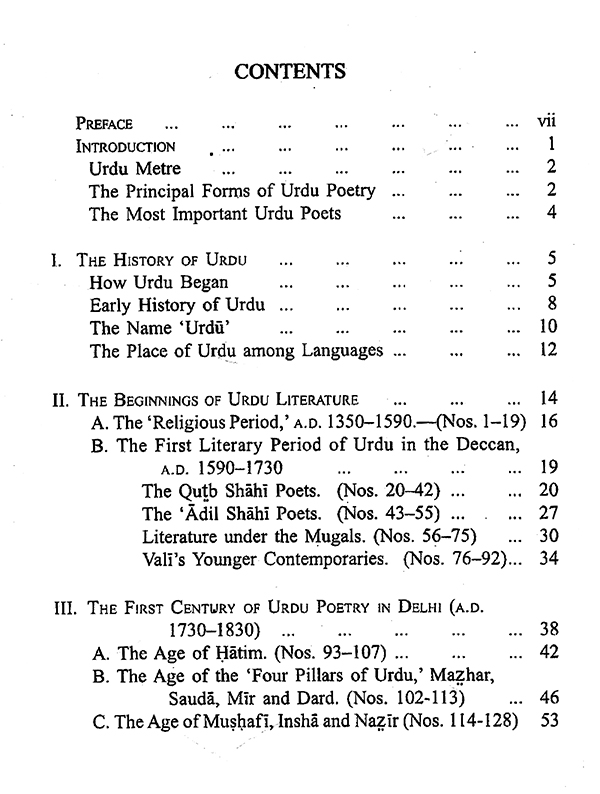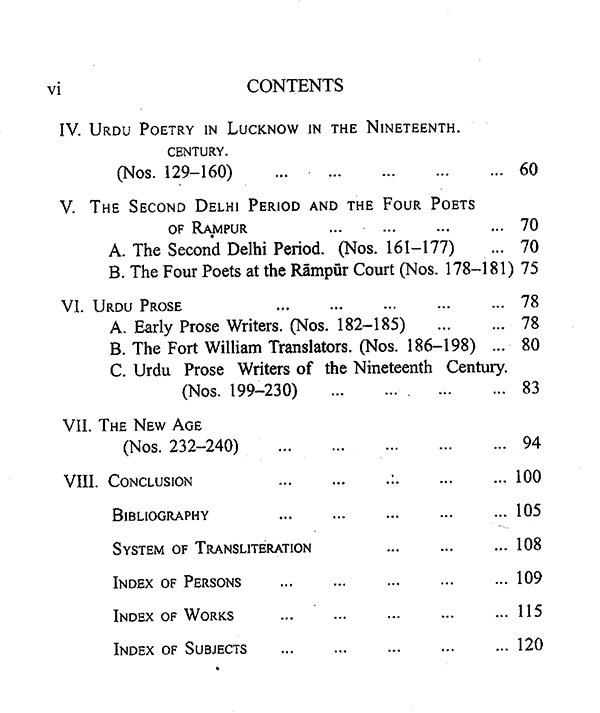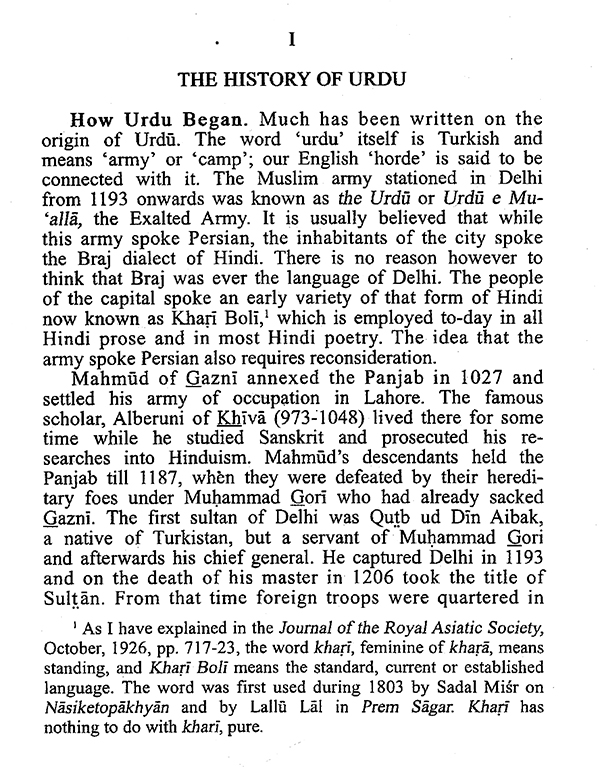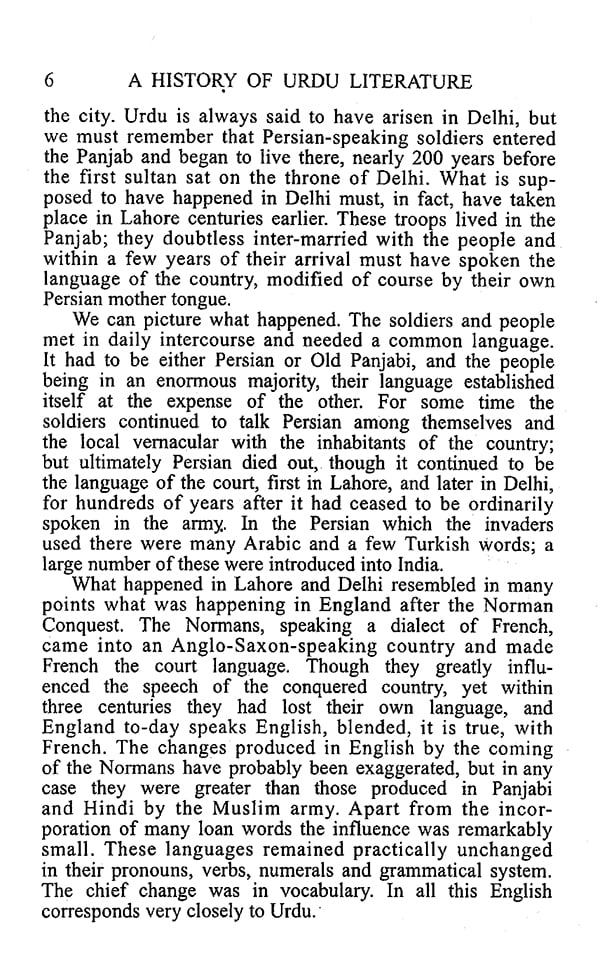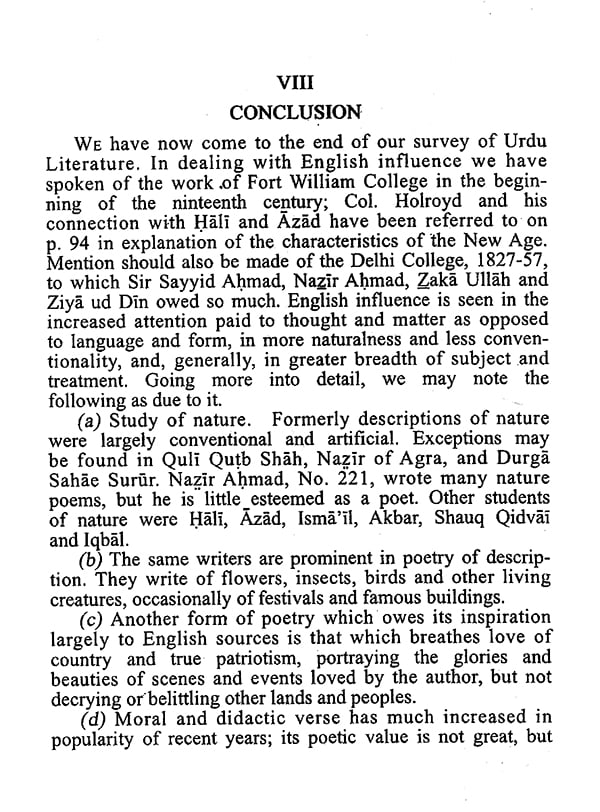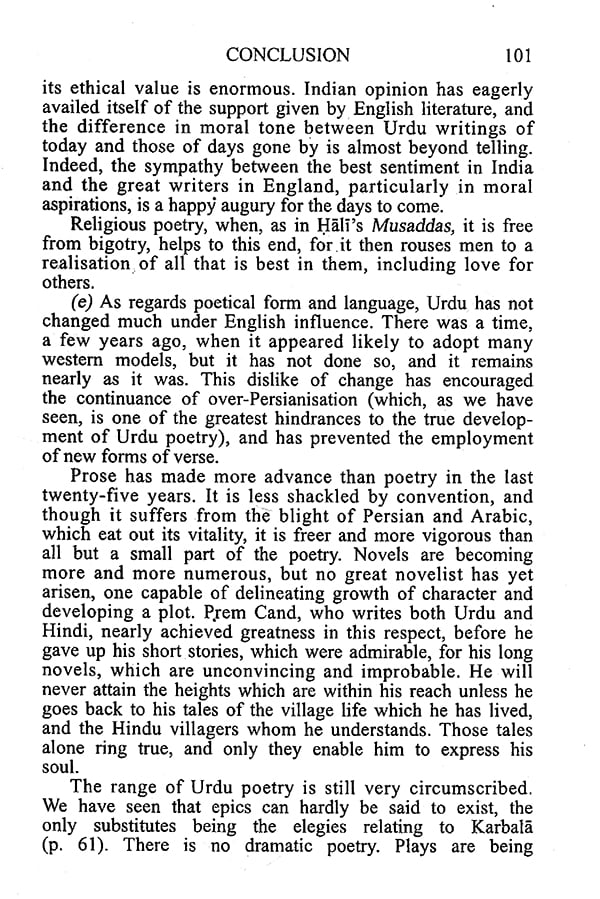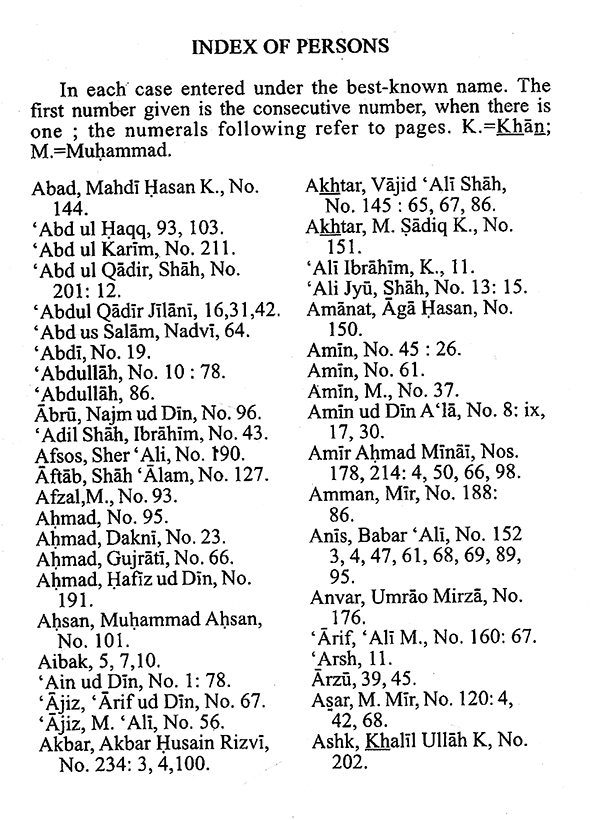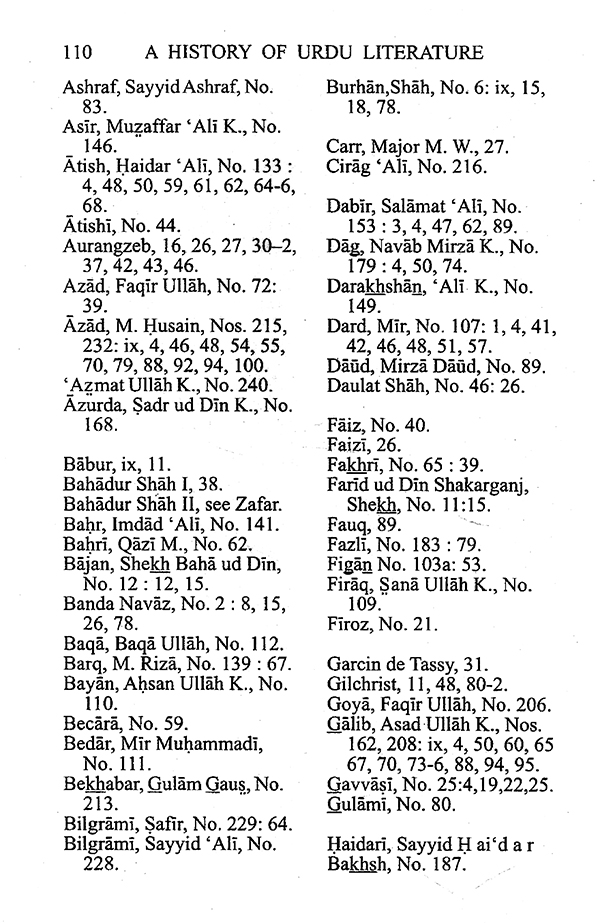
A History of Urdu Literature
Book Specification
| Item Code: | NAZ337 |
| Author: | T. Grahame Bailey |
| Publisher: | Manohar Publishers and Distributors |
| Language: | English |
| Edition: | 2021 |
| ISBN: | 9789390035694 |
| Pages: | 138 |
| Cover: | HARDCOVER |
| Other Details | 8.80 X 5.80 inch |
| Weight | 260 gm |
Book Description
This short history of Urdu literature aims at describing Urdu language and its literature right from its beginning till the end of 1928. The book covers the origin of Urdu language, its early history, and also Dakhani Urdu and its writers. No country can afford to neglect her ancient heritage — the treasury of its knowledge, wisdom and beauty which are contained in its literature, philosophy and art which are too precious to be lost. Utmost care has been taken to select the writers and poets covered in this unique volume. Their works were scholarly and at the same time sympathetic so that the best may be enjoyed by the reader. It also covers the religious period, the first literary period in the Deccan when Qutb Shahi poets flourished, the Adil Shahi poets, Urdu poetry in Delhi and Lucknow in the nineteenth century, the later periods and also includes the period of the Fort William translations. At the end is a bibliography of Urdu classics.
T. Grahame Bailey was Reader in Hindi and Urdu in the University of London. Prior to that he was Missionary of the Church of Scotland. He is the author of books on grammar, languages of northern Himalayas, books on Kanauri vocabulary, Punjabi phonetics, and Punjabi grammar among other scholarly works.
THIS short history of Urdu Literature, completed in 1929, aims at describing Urdu and its literature down to the end of 1928. All writers who were alive then are excluded. The only living author to whom detailed reference has been made is Iqbal, whose, fame seems to warrant his inclusion.
The Bibliography shows what books are available for further study; there is very little in English.
The following are special features of this work:
(a) The views on the origin and early history of Urdu differ greatly from those of previous authors, particularly in the antiquity attributed to it and the importance attached to Panjabi and the Panjab in connection with its development. The remarks on the problem of the name 'Urdu' are new, and in explanation of the term 'Khali Boll' I have tried incidentally to correct prevailing misconceptions on the subject.
(b) Much of what has been said about the Deccan and Dakhni writers is new. The place of the Deccan in Urdu literature has not been fully, understood, and many Dakhni authors are unknown even by name to people who live in the north of India. I have therefore endeavoured to make this section as full as possible, hoping that the mention of these little-known or unknown names will not only induce students to read Dakhni works already in print, but lead to the publication of those at present in MS., and to the study of the valuable material contained in them.
INFORMATION about the early Ur& poets is ultimately derived from old Persian anthologies, the great majority of which are unpublished. The earliest known are Nikat ush Shu `ard by Mir (1752), and Tazkira e Gurdezi (1752). Other famous anthologies are Makhzan i Nikat by Qaim (1754); Gulzar i Ibrahim by 'Ali Ibrahim Khan Khalil (1783); Tazkira e Hasan by Mir 1-.Iasan (1776); Tazkira e Shu'ara e Hindi by Mushafi (1794). The first anthology in Urdu is 'Ali Lutf's Gulshan i Hind (1801).
There are several special difficulties in the study of Urdu literature:
1. Very little early literature has been published. Thus, the extant poetry written before 1800 is nearly all in MS. If we except Vali, Sauda, Mir, Dard and Qaim, all the writers whose works have been published with any completeness were men who lived till after 1825. Many published works, especially those which were first printed in magazines, are not now obtainable.
2. It is often impossible to get access to original MSS., and we have to depend upon quotations in books. The anthologies are often inaccurate and their information is meagre. This accounts for the similarity between the various remarks made by modem authors about old writers; their authorities are the same.
3. There is considerable doubt about dates, particularly the earlier ones. The anthologies frequently omit dates, and often differ in the dates they give.
4. It is nearly impossible to be sure of the genuineness of early Urdu poetry.
Libraries in Great Britain and in some of the Feudatory States of India possess important Urdu MSS.; if these could be published, most of our problems would be solved.
**Contents and Sample Pages**